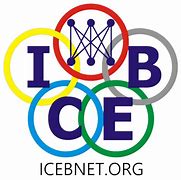Abstract
Despite the popularity of remote work in the Covid-19 pandemic, little research attention has been paid to examining how individuals can mitigate technostress in the remote work, especially work from home. To fill this gap, the authors first reviewed the extant literature and found some difficulties of adopting the mitigating approach suggested by those studies. Then, the authors suggest a new model ad a workable plan to moderate remote work exhaustion when the proposed approach is used for reducing progressive distancing technostress. To be more specific, the authors posited that early warning time could moderate the relationship between technostress and remote work exhaustion. The authors suggested presetting it in the computer system using a tool called “Windows Task Scheduler” to activate this early warning mechanism. The novel concept should make contributions to the mitigation of technostress.
Recommended Citation
Chen, Xi and Hung, Wei Hsi, "Mitigating Effects of the Early Warning Time on Individual Work Technostress" (2023). ICEB 2023 Proceedings (Chiayi, Taiwan). 37.
https://aisel.aisnet.org/iceb2023/37


